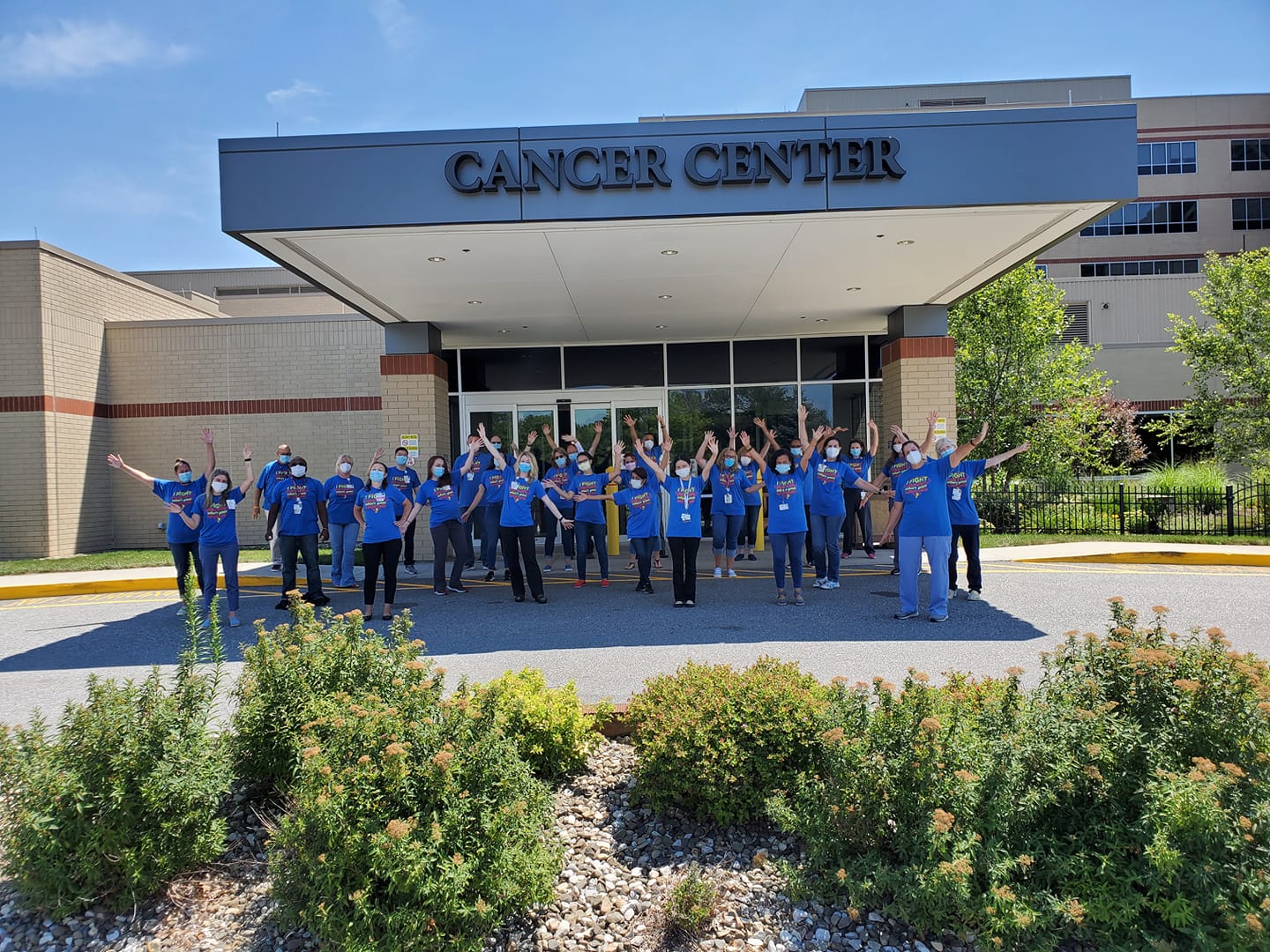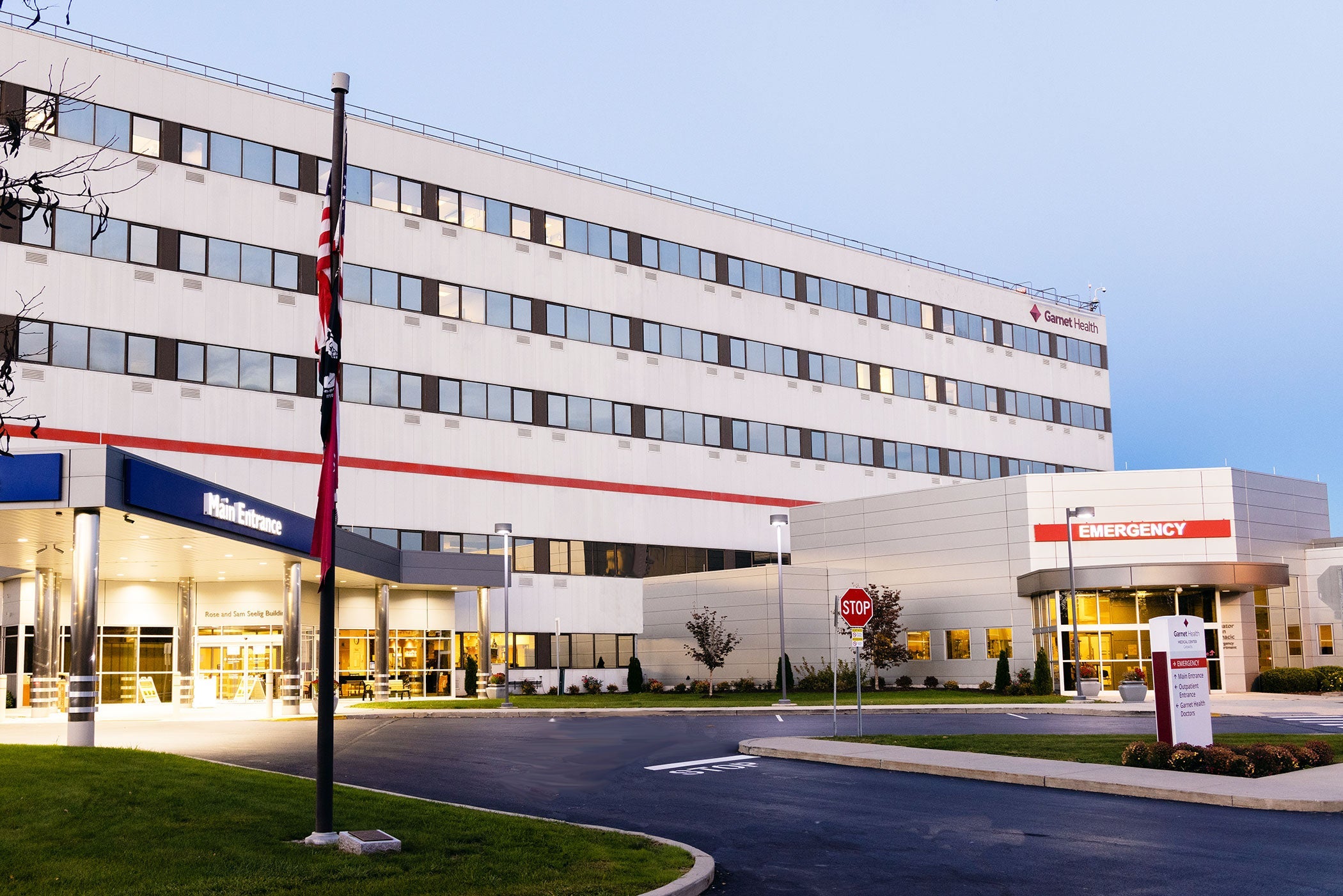Neurological Cancer
Advanced technology and compassionate staff to personalize your neurological cancer treatment.
Find a Provider Location SearchBody
Neurological Cancer Treatment
Our neurological cancer program at Garnet Health is dedicated to comprehensive and customized care for people with neurological cancer.
Our patients and their families can feel confident that we have the expertise to deal with a wide variety of primary and metastatic neurological tumors. We have a highly skilled team of physicians including medical and radiation oncologists, pathologists and radiologists who review our cases in our neurological cancer conferences, and we have the equipment and capability to provide innovative evidence-based care.
Diagnostic Testing & Treatment for Neuro Cancers
We have the tools we need to diagnose and treat our patients. Accurate diagnosis helps us plan our treatment approach, and we have the latest MRI, 64-slice CT, and PET/CT scans for imaging, and the ability to do advanced pathologic studies of tumor genetics and molecular markers.
Our neurosurgeons perform complex brain surgeries, including:
- Stereotactic Radio Surgery - Our radiation oncologists work with the neurosurgeons, to perform Stereotactic Radio Surgery where a highly targeted beam or radiation is directed to the tumor without open surgery. Patients may also receive other types of radiation treatment to the brain or spine.
- Chemotherapy - If the need for chemotherapy is identified by the medical oncologist, our infusion center can provide the needed care in a warm and welcoming environment. This comprehensive approach to neurological cancer care at Garnet Health affords our patients state-of-the-art medical care close to home.
- Frameless Stereotactic Microsurgery - This procedure allows for an extremely precise removal of tumors while preserving healthy tissue.
- STAR Ablation Procedure - Tumors of the spine can be treated with a variety of techniques including the minimally invasive STAR ablation procedure.
- Kyphoplasty - We also have the ability to perform a surgery called kyphoplasty to reinforce a spine which has degenerated due to cancer, reducing pain and improving mobility.
About Neurological Cancer
Neurological cancer typically refers to benign (non-cancerous) or malignant (cancerous) tumors of the central nervous system (CNS) in the brain or spinal cord. Most of these tumors are cancers that have spread to the brain or spine from other parts of the body. The majority of neurological cancers are malignant, but some are benign tumors.
Some common symptoms a patient with neurological cancer experience, include:
- Seizures
- Trouble speaking
- A change of mood such as depression
- A change in personality
- Weakness or paralysis in part of the body
- Facial paralysis, numbness, or pain
- Changes in vision, hearing, or other senses
Treatment may include surgery, chemotherapy, radiation therapy, and/or medication to prevent swelling and/or seizures, bone marrow transplantation, or other treatments your doctor may prescribe. Specific treatment plans for neurological cancer are highly dependent on several factors of the patient’s overall health, age, and medical history; as well as the type, location, and size of the tumor.
Overall, the chance that a person will develop a malignant tumor of the brain or spinal cord in his or her lifetime is less than 1%.
The American Cancer Society’s estimates for brain and spinal cord tumors in the United States for 2017 include both adults and children.
- About 23,800 malignant tumors of the brain or spinal cord (13,450 in males and 10,350 in females) will be diagnosed. These numbers would be much higher if benign tumors were also included.
- About 16,700 people (9,620 males and 7,080 females) will die from brain and spinal cord tumors.
A diagnosis of neurological cancer can be particularly devastating to patients and their families. Having access to high quality, high tech care is critical in treating these cancers. Fortunately, we can provide patients with cutting-edge technology along with a focus on the needs of the individual patient through all aspects of treatment.
Neurological Cancer Support & Resources
We understand it may be very difficult to cope with a diagnosis. We are here for you every step of the way. At Garnet Health, we provide extensive supportive and educational resources to help you navigate treatment and follow-up care. These include :
- Cancer registry: Pay it forward with our cancer registry, which provides important data to regional and national cancer agencies in order to improve federal cancer treatment recommendations and share valuable information for researchers to analyze.
- Cancer survivorship: Going through cancer treatment is hard on you physically, as well as mentally and emotionally. Our survivorship support system helps patients, survivors and their loved ones regain quality of life after a cancer diagnosis.
- Cancer rehabilitation: Our TRAQ (Training & Recovery for Achieving Quality of Life) Program helps cancer patients transition out of treatment and into the next phase of recovery. The program seeks to mitigate the lasting impacts of cancer treatment and continuously improve your quality of life.
- Brain Tumor and Brain Cancer Support Services and Resources: A list of support services and resources for those diagnosed with brain tumors or brain cancer.
Cancer Treatment Services
Our goal is to provide excellent clinical care and support for the whole person—we are here to help in the journey from cancer patient to cancer survivor.
Learn MorePatient Information & Resources
We provide a variety of patient resources online regarding your patient rights, billing, and more - so you can get a jump start on your stay or appointment.
View ResourcesLocations
Spagnoli Family Cancer Center at Garnet Health Medical Center
707 East Main Street
Middletown, NY 10940
Oncology & Hematology Treatment Center at Garnet Health Medical Center - Catskills
68 Harris Bushville Road
Harris, NY 12742

